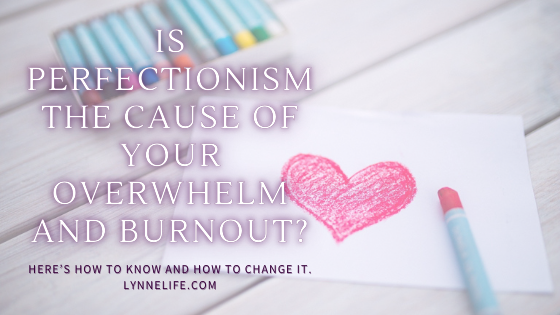Is perfectionism the cause of your overwhelm and burnout?
- Constantly striving to do the right thing?
- Complete that project?
- Reach your ideal weight or
- Win a new promotion, or simply
- Do something the right way
These aren’t necessarily perfectionism, or rather, aren’t necessarily a problem!
Here’s how to know and how to change it.
These actions are sustainable when;
-
- You allow yourself to get it wrong.
- You accept that not everything will go right and that’s ok.
- You set yourself up for success, allow “failures” AND keep on going because you are committed to the result.
We know we are doing it right, using perfectionism FOR us if, during this time, the predominant feelings – especially towards ourselves – are more often feelings such as…
-
-
-
-
- Generous
- Forgiving
- Committed
- Nurturing
- Compassionate
- Caring
-
-
-
Striving for the best isn’t sustainable when you’re constantly in negative emotions.
- If you find yourself in negative emotions which likely consist of blaming your perfectionist tendencies you might be causing yourself overwhelm and heading towards burnout.
You’ll know this is you if your dominating feelings are…
-
-
-
- Guilt
- Shame
- Blame
- Judgement
- Jealous
- Selfish
-
-
You need to be able to identify if you have perfectionism working for you or against you. And now you can.
If you are using perfectionism to your benefit, keep going because it’s working!
If you are using it to metaphorically beat yourself up, it’s time to do it differently.
Recognise, that perfectionism, along with most habits, comes from what you have learned over time, and this is good news because if it’s something you have learned to do and that means you can also learn new habits.
Old habits don’t need to be “worked on” they need to be replaced with new supportive habits.
If you’re in a rut of negative perfectionism take these three steps to get out of it and start using the positives, start using your perfectionism to support you, and use it in your favour.
- Step 1 is to take stock – notice anytime you “think” you’re being a perfectionist and take notice (check the list) of the feeling you are having.
- Step 2 is to decide if you want to keep it. Is it working for or against you?
- Step 3 is to let it go. Of course, if it’s working for you – keep going – and appreciate what is going well. If it is working against you, it’s time to let it go…
-
- Now is the time to acknowledge that perfectionism isn’t the enemy & ask the three questions below.
- Use the above lists and recognise how you are feeling, [and what this is costing you].
- Understand the feeling is because you think something isn’t working.
Don’t get me wrong, no one likes things that don’t work – that’s normal. But you don’t need to feel bad or to make it mean something bad about you. After all, you could choose to see “not working” as what not to do next time.
When we try something out and it doesn’t work, we can evaluate, we can find out why it didn’t work and can learn from our mistakes, what to do next time. Want some help with this, I have a free online evaluation course here.
Being aware of these situations as a learning opportunity will naturally allow you to think differently about them and that is the beginning of welcoming your new success habit.
Next is to cultivate your new habit by intentionally thinking about it.
Next time a perfectionist situation arrives and you are shaming or blaming your perfectionism ask yourself these three questions.
- Am I blaming my perfectionist tendencies? [Yes/No – if no, you’re done here!]
- What is blaming perfection stopping me from seeing? [what is it stopping me from doing or changing?]
- If not perfectionism, what else might be the cause of that thing not working/why did that thing go wrong?
Here are some examples, which one resonates?
e.g. 1. I bombed the job interview,
The thinking was that I didn’t want to sound stupid and I couldn’t answer all the questions.
- 1. Yes
- 2. I was lacking confidence before the interview, I wasn’t sure I was qualified for the position – instead of blaming perfectionism I could have been more self-supportive, and asked for help or clarification.
- 3. I could build my confidence before the next interview, get coaching and support and feel more prepared going into the interview.
e.g 2. I can’t write the book or submit it for publishing
Thinking, my perfection won’t allow me to ever see it as good enough.
- 1. Yes
- 2. I could ask for opinions from an editor or publicist to see if the book is ready
- 3. I’m judging myself and afraid to put myself out there and could get coaching on my wanting to stay hiding.
e.g 3. I keep rearranging my lounge room, it’s never right
- 1. Yes
- 2. I am unhappy about the way my partner leaves his shoes all over the floor every night.
- 3. I am finding my partner’s habits very annoying and if I wasn’t blaming my own perfection I could be having conversations about how we could live in harmony.
Knowing there is a difference between using perfectionism for or against you means having one more tool to use for your success AND one less thing you are berating yourself for.
Now you have another way to be kinder to yourself and bring more happiness in life.
When you’re ready, book your life audit consultation here and find out what your next perfect or imperfect steps are to leave overwhelm and burnout behind changing your life to more happiness and joy.






